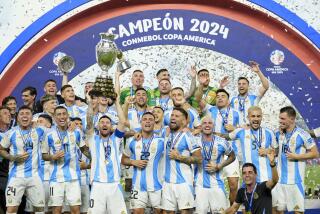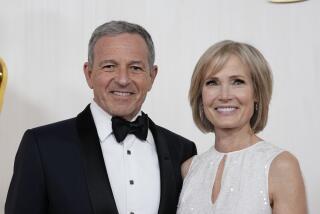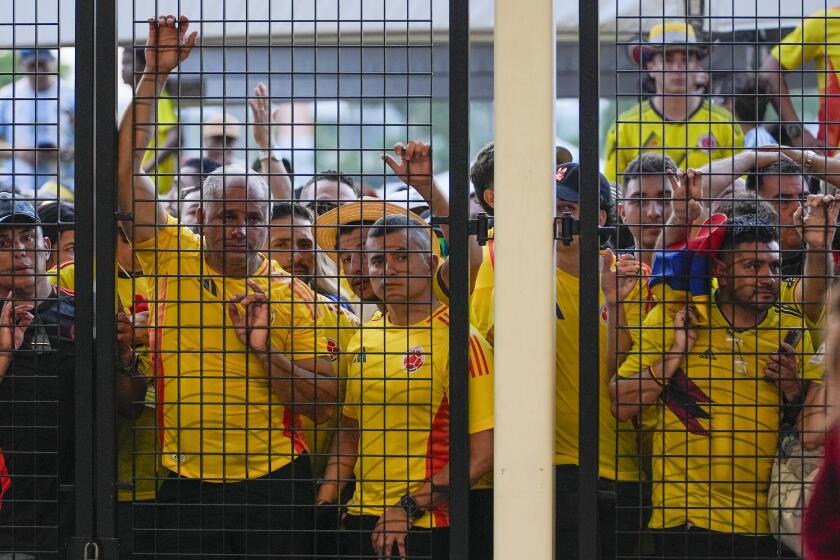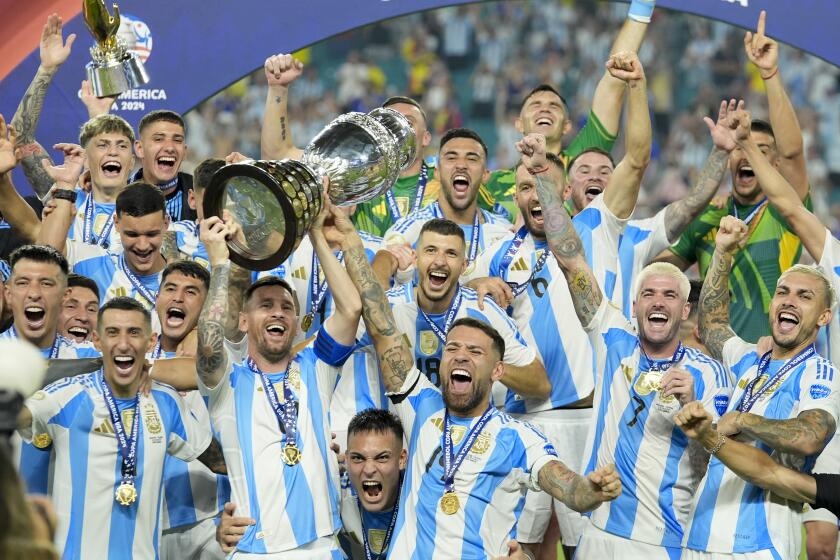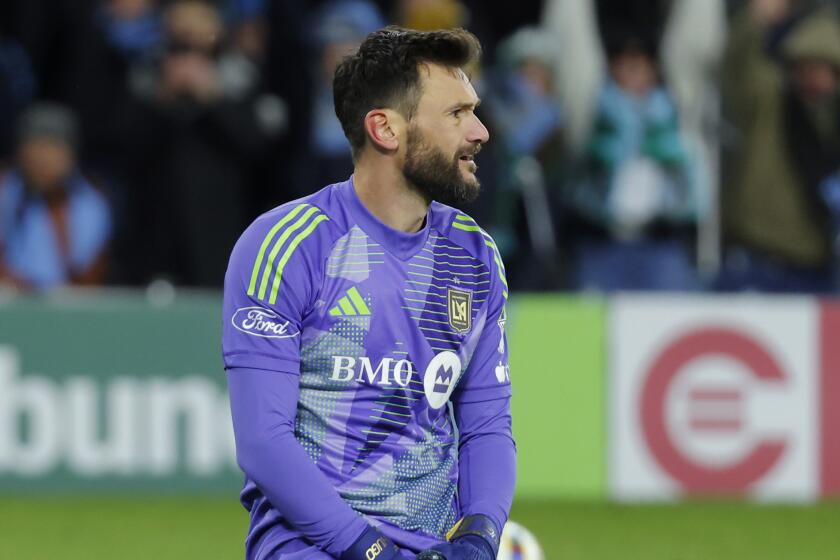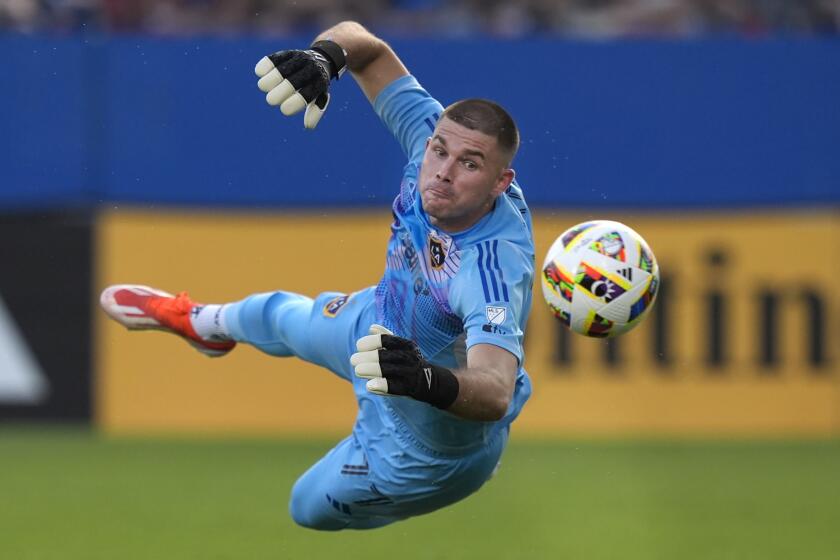1966 World Cup Upstarts Absent but Not Forgotten
It was one of the greatest upsets in soccer history. Playing in their first and only World Cup, the lowly North Koreans stunned the sports world in 1966 by beating the favored Italian team and advancing to the quarterfinals.
“The fall of the Roman Empire has nothing on this!” proclaimed a British newspaper, while a breathless television commentator was left gasping: “They’ve won! Good heavens, they’ve won!”
This year, the North Koreans are conspicuous only by their absence.
The reclusive Communist regime didn’t try to qualify for the 2002 World Cup, which is being held in Japan and South Korea, and spurned all efforts to get it involved. It declined when South Korea offered to relinquish hosting duties for some matches so they could take place in Pyongyang, the North’s capital. It gave the South Koreans the brushoff when they suggested that a few North Korean athletes play with the South Korean team.
The North Koreans didn’t even bother to RSVP to an invitation to send a symbolic delegation to the May 31 opening ceremony in Seoul. Among those who had been invited was Pak Doo Ik, who scored the winning kick in the 1966 match against Italy.
The only solace for South Koreans who had wanted to celebrate the World Cup with their estranged brethren is the mere fact that North Korean television broadcast some matches--albeit illegally, with pirated tapes, because it never paid for the broadcasting rights.
“At least it indicates they have a keen interest,” said Lin Byung Taik, a spokesman for the South Korean organizing committee for the tournament.
Despite their standoffishness, the North Koreans are hardly forgotten. Their brief shining moment in the 1966 World Cup has been a constant point of reference in the 2002 games, especially when South Korea beat Italy. During Tuesday’s match in Daejon, South Korea, fans held up placards reading, “Again, 1966,” which so irritated the Italians that they complained to the FIFA, the governing soccer association.
Fading memories have also been refreshed by a newly released British documentary about the 1966 North Korean team that has been airing on South Korean television.
“The Game of Their Lives” set out to solve what had been a long-standing mystery among devotees of the sport: What happened to the North Korean team afterward?
It was well known that the Italians slunk home to be pelted with tomatoes by angry fans. (To this day, any disaster in Italian soccer is referred to as “another Korea.”)
But at least as far as the outside world was concerned, the North Koreans vanished into oblivion. They never played in another World Cup. It was darkly rumored that the players had been sent to prison camp as punishment either for drinking and womanizing or--the rumor had many permutations--for losing to Portugal in the next match.
The true story was far less dramatic. When the British filmmakers, Dan Gordon and Nick Bonner, tracked down the players in North Korea, they were living in a style befitting retired athletes of any country--in comfortable, though not lavish, homes cluttered with sports memorabilia. Most of them were working as coaches.
“The whole story that they were purged was Cold War propaganda,” Bonner said. “They returned to North Korea as national heroes. They still are national heroes. People might not recognize their faces, but they know their names.”
Members of the 1966 team were thrilled to talk to the filmmakers about the glorious match against Italy, although they used the opportunity as a platform to praise the North Korean system of government and ideology.
The players recalled that before leaving for the tournament, they had a personal audience with North Korea’s founder and then-leader, the late Kim Il Sung, who urged them to win a match to overturn the European domination of world soccer.
“If I conceded a goal, the reputation of North Korea would fail. We would have failed in the task set by the Great Leader. Therefore, I guarded the goal with my life,” goalkeeper Ri Chan Myong recalled.
At the time, the North Koreans were only the second Asian team to play in the World Cup and were viewed as a curiosity. The average height of the North Korean players was 5-foot-5, and one sports commentator, Dennis Barry, told the filmmakers that “it was like watching a team of jockeys playing.”
Also, it was the height of the Cold War--the fact that a team from a Communist country had qualified for a tournament taking place in England caused a diplomatic uproar. In particular, the South Korean government had lobbied the British not to admit the team from the North.
Despite the jealousy, South Koreans who remember the 1966 World Cup say they cheered when the North Koreans beat Italy, and a bootlegged film of the game sold in Seoul at the time for as much as $500, according to Chang Heng Hoon, who was one of the few South Korean journalists who covered the tournament.
Chang added, however, that the North Korean players today are not nearly as good as the South Korean team because of their relative lack of exposure to international matches since the 1960s.
South Korean President Kim Dae Jung had been eager to involve the North Koreans in the World Cup as a means of promoting his Nobel Peace Prize-winning “sunshine policy” of engagement with the North. Numerous envoys from Seoul--as well as FIFA chief Joseph “Sepp” Blatter--have traveled to Pyongyang in recent years with various enticing propositions.
There were ambitious dreams for flights between Seoul and Pyongyang during the monthlong tournament so World Cup tourists could also attend a festival marking the 90th anniversary of the late leader Kim’s birth. There was a plan to repair rail links that have been severed since the end of the Korean War in 1953 so Chinese soccer fans could use land routes to visit South Korea for the games.
Nothing materialized.
“Nothing went any further than the drawing board. I think it was just the wrong timing, and the whole business with the ‘axis of evil’ speech didn’t help matters,” said filmmaker Bonner, a North Korea expert who lives in Beijing, referring to President Bush’s characterization of North Korea, Iraq and Iran.
The latest plan calls for North Korea’s national soccer team to visit Seoul on Sept. 6-9 to play a friendly match with the South Korean team. The North Koreans have agreed, according to the European Union Chamber of Commerce, which is sponsoring the match. Whether it does indeed take place will be something of a litmus test for the drift of North and South Korean relations.
Sports enthusiasts here say that soccer and other sports might just be the prescription for restarting the stalled North-South peace process.
“Football can be about nationalism,” said Lin of the South Korean organizing committee, “but it can also be a strong vehicle to promote cooperation between countries.”
*
Seoul Bureau chief Demick is currently on assignment in Jerusalem.

